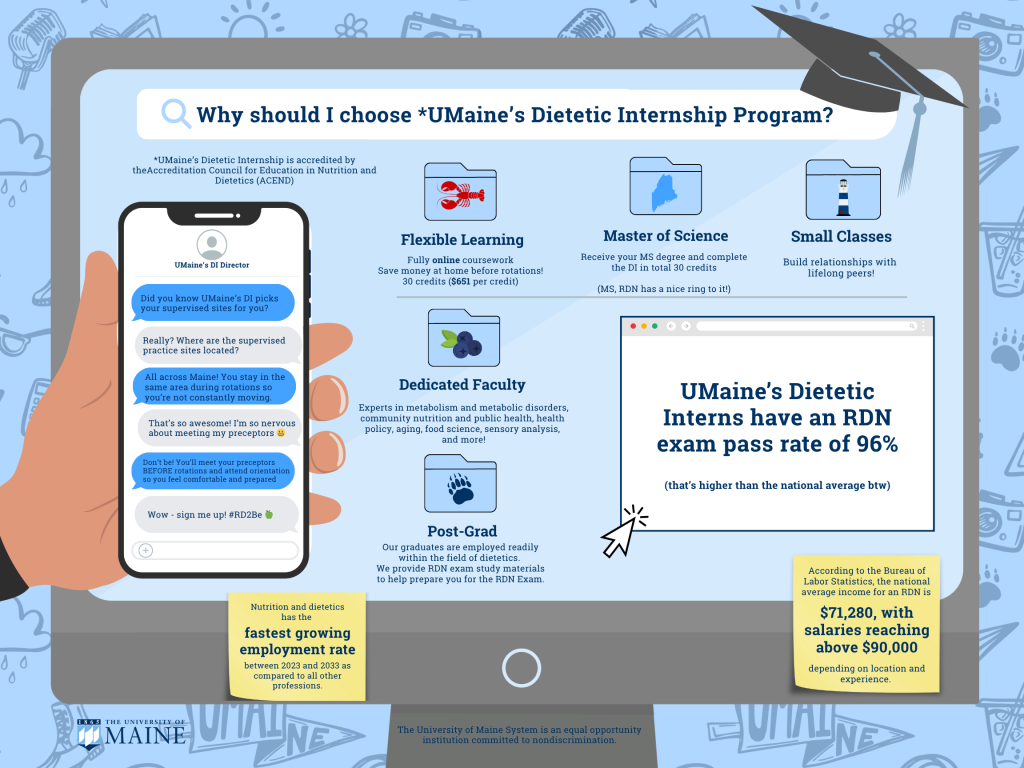Program Description and Overview
The UMaine Dietetic Internship (DI) is a combined master’s* and internship program that leads to eligibility to sit for the registration exam to become a registered dietitian nutritionist (RDN). Traditional and accelerated pathways are available. For both pathways, graduate courses are fully online (30 credit hours) with an in-person, individualized supervised practice experience (1072 hours). An intern may take courses in human nutrition and/or food science.
Currently, the program is approved to accept up to ten dietetic interns per year and two Individualized Supervised Practice Pathway (ISPP)** interns per year. Our graduates have a high passage rate for the National Registration Exam (96%) and are employed readily within the field of dietetics.
*Both master’s and doctoral programs are available. The minimum degree requirement for entry-level RDNs is a graduate degree (master’s or doctoral degree), so the UMaine DI Program fulfills these requirements.
**The ISPP option is only available for UMaine doctoral students.
Traditional Pathway
This pathway is for those students who have completed a Didactic Program in Dietetics (DPD) (from another institution or from UMaine) that is accredited by the Accreditation Council for Education in Nutrition and Dietetics (ACEND).
Accelerated Pathway
This pathway is available to eligible students in UMaine’s DPD program and decreases the total amount of time required to complete an MS and the DI (in as few as 16 months).


Online Coursework
Credit Hours
Pass Rate RDN Exam
Interested in a Thesis?
A thesis is a great way to gain experience in nutrition research. We have many faculty with expertise in community nutrition, food insecurity, childhood nutrition, integrative health, metabolism, aging, and more. Prior to working with your thesis advisor, be sure to discuss if you need to be on location.
Individual program length can vary. Interns are expected to complete the program within 36 months (150% of planned program length).


